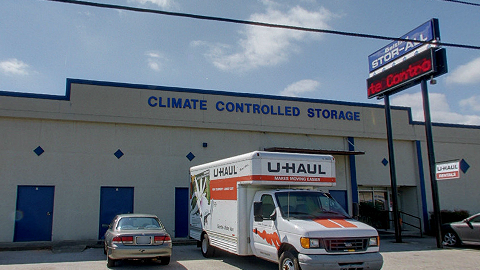
Do You Need Climate Controlled Storage?
The climate can wreak havoc on stored items in many regions of the U.S. In parts of the South and West, daytime temperatures regularly reach scorching highs during the summer. Temperature extremes can be tough on everything from wood and leather to pictures and videotapes. Some items may crack or warp, others may yellow, while documents may become unreadable over time. Some self-storage facilities offer climate controlled storage units. Usually these cost a little more than non-climate controlled units, but before paying the extra cost you should figure out if you actually need to use a climate controlled unit.
Before we get to questions, we first have to define what exactly climate controlled means. A climate-controlled self-storage unit is located on a floor or within an area where the temperature range is controlled. Basically, it’s a heater, air conditioner, humidifier, and dehumidifier all in one. The general industry standard for a climate controlled storage unit is a temperature range between 50 to 85 degrees. Most climate controlled storage facilities also control the humidity. Typically, these units are kept at humidity levels around 55 percent. Humidity is particularly dangerous to a variety of items. Below are 4 questions to ask yourself to help you decide if you should use a climate controlled storage unit.
1. How long will I be storing my items?
If you will be only storing your items for a short amount of time (a few weeks to a couple months) you may not need climate controlled depending on where you live. However, if you plan on keeping your valuables stored for many months to years, you may want to consider using a climate-controlled unit.
2. Where will I be storing my items?
As stated above, different regions have different fluctuations in temperature and humidity. In the western United States you have large differences in temperatures throughout the day, and in the southern United States you have differences in temperature as well as humidity to worry about.
3. How delicate are the items that I am storing?
Generally speaking, the more delicate your belongings, the more likely you should consider climate control. Keep in mind, even a climate controlled storage unit is not appropriate for certain artwork, pianos, wine or other items that require a much narrower range of temperature variation. Other items that may be susceptible to damage without climate control include: bedding and mattresses, electronics, sports equipment, metal appliances, books and other paperwork.
4. How valuable are the items that I am storing?
The value of your items can be assessed by three different categories: monetary, historical, and sentimental. Some items can have more than one category of value. The higher value you give your stored items in any of the three categories, the more you should think about using a climate controlled unit. Anyone storing expensive or irreplaceable items—especially if they hold sentimental or historical value—should consider climate control.
The answers to these 4 questions will help you decide if you need to store your items in a climate controlled unit or not. STOR-ALL has both climate controlled and non-climate controlled units at both locations
Beltline and Security Stor-Alls are located in Mobile, Alabama for all of your storage needs! Check outBeltline and Security on Facebook, or visit us online at www.StorAlls.com!
Services Offered at Beltline & Security Stor-Alls:
Climate Controlled Storage | Non-Climate Controlled Storage | RV Storage | Boat Storage
